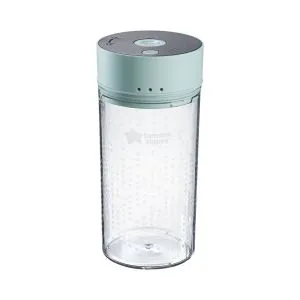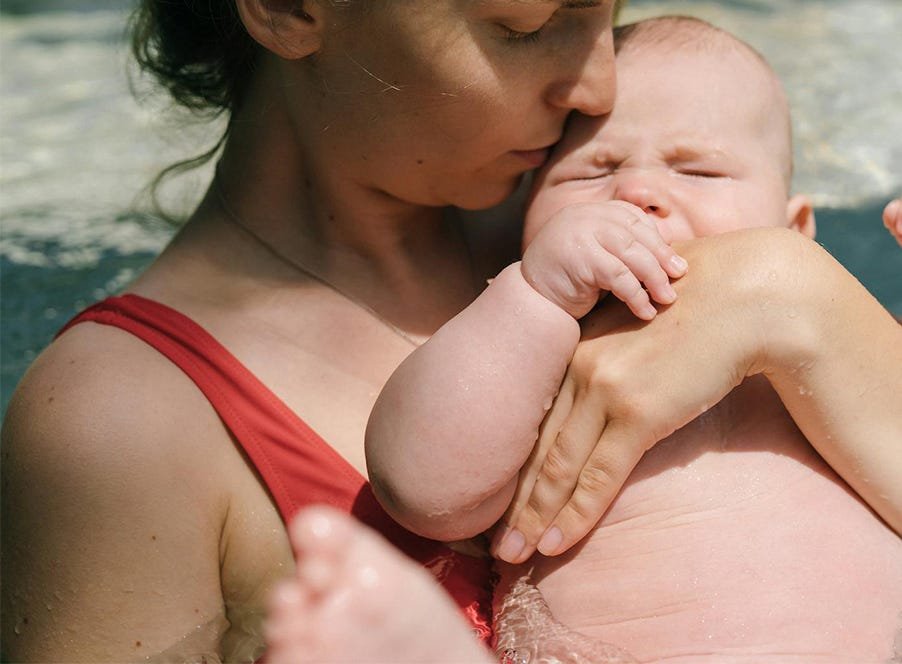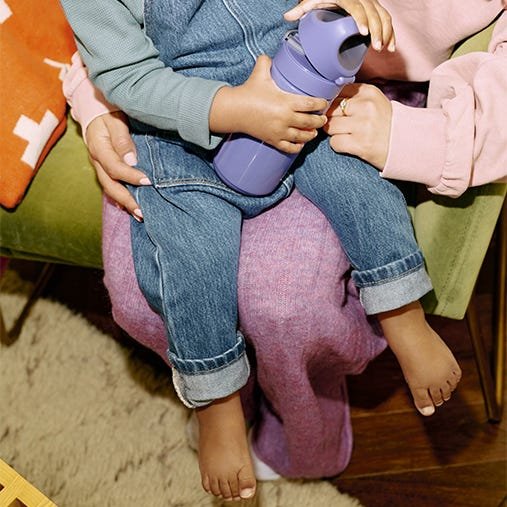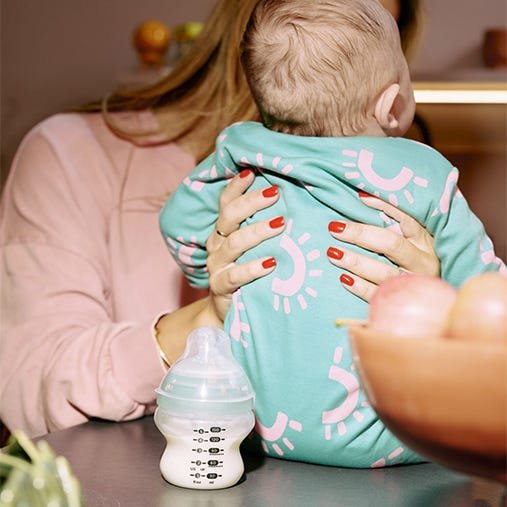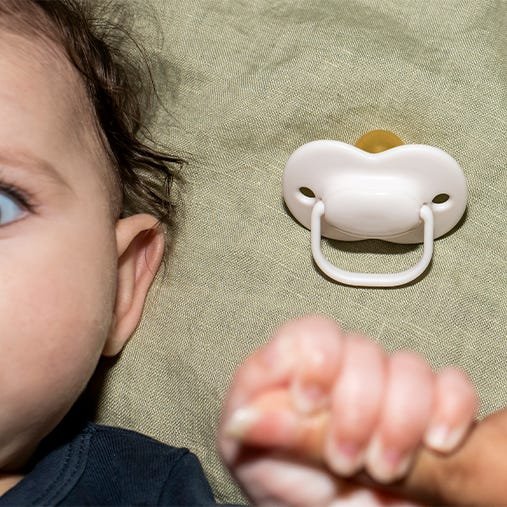Taking your baby swimming from an early age can be lots of fun! It's a great way to bond and establish a vital life skill.
While there's no set age when you can or should take a baby swimming, there are some points to consider when you feel like the time is right for your little one to take the plunge. Let's run through some key points around taking a baby swimming and answer some of the most asked questions about babies and swimming.
What are the benefits of taking a baby swimming?
Exposing little ones to water and swimming from a young age is great for their development because it...
- strengthens their muscles
- improves their balance, coordination, and motor skills
- allows you and your baby to bond
- improves their sleeping pattern
- improves their appetite
- builds water confidence
- is a crucial life skill to keep them safe.
Can I take my newborn swimming?
Yes, you can take your baby to the swimming pool for a dip at any age. There's no need to wait until they've received their vaccinations. However, if your little one was born prematurely, it's best to check with your doctor or health visitor before you plan your first trip to the pool.
To avoid the risk of infection, mums should wait until after their six-week postpartum check with their doctor, or seven days after post-birth vaginal bleeding (lochia) stops before they go to the pool with their little one. That said, nothing is stopping your partner or another family member taking your baby to the pool in the meantime.
Can my baby go in a chlorinated pool?
Unless they have a chlorine allergy, there's no reason why a baby shouldn't go in a chlorinated swimming pool at any time from birth.
However, if your little one has a skin condition, it's a good idea to check in with your doctor to make sure chlorine won't irritate them.
After every trip to the pool, you should always rinse all chlorinated water off your baby's skin and apply a baby-safe moisturiser to stop their skin from becoming dry.
When should I start baby swimming lessons?
When it comes to attending swimming classes, there's no rush and you should do so when your baby is comfortable being in water during bathtime.
Even though newborn babies can go in a swimming pool - and some professionally supervised adult and child swim lessons start as early as four weeks - most infant swimming classes have an age limit. This can vary from one to the next, so it's a good idea to research your local classes and check your chosen pool's admission policy.
Look for a local class that's led by an instructor who's trained to teach babies and toddlers and has a nationally recognised qualification.
Swim Australia can help.
Can babies go underwater?
Yes, they can.
Babies can control their breathing when underwater from birth. This is thanks to a reflex that's triggered when they feel the water on their face or in their nose or throat, called the 'laryngeal' or 'gag reflex'. This means that when they go underwater, the soft tissue at the back of their throat closes and blocks the entrance to their airway.
They also have a reflex reaction called the Bradycardic response that moves their arms and legs in a swimming motion.
Although amazing, both natural abilities disappear at around six months old. So, using these reflexes from an early age and preparing your baby to go under the water can pay off. It will help make sure they won't panic later in life when they swim face down in the water.
During baby swimming lessons, little ones are taught ways of controlling their breathing before they go underwater. They'll never be submerged underwater unless the instructor is 100% sure that they're safe and ready.
What do I need to take when swimming with a baby?
Here's our checklist of essentials that you should take when going swimming with your little water baby:
- A swimming costume, a pair of trunks or a baby wet suit for your baby, and some comfortable swimwear for you too!
- Two warm fluffy towels - one for you and another for your baby.
- A swim nappy.
- A normal nappy to change your baby into afterwards, some baby wipes and a changing mat.
- Floats or armbands - these will sometimes be provided by the swimming school, but it's better to be safe than sorry!
- Some spare change for lockers to keep your bits and bobs in while you swim.
- Shampoo and shower gel for you and some moisturiser for your baby's delicate skin.
- A hairbrush for you and a comb for your baby's hair if needed.
- A post-swim snack and a drink for you, and a feed for your little one. After all, learning to swim is hungry work!
- Cosy and comfy clothes to put on after your swim. You might want to pack a hat for your baby to pop on if it's cold outside.
